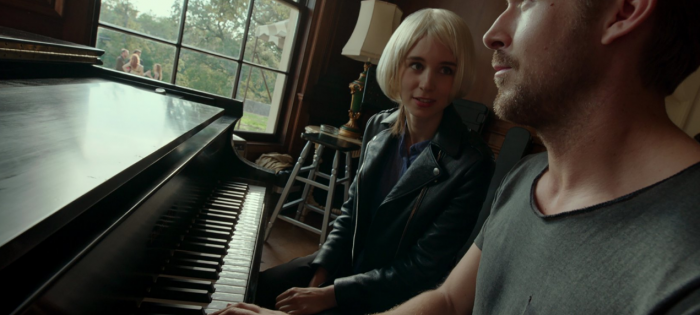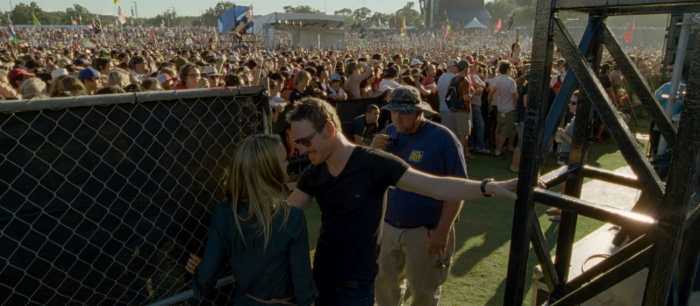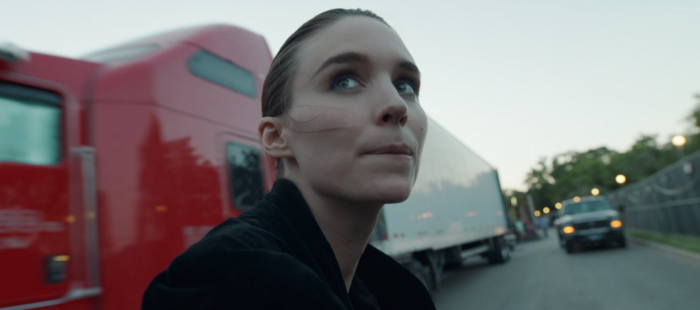

It seems that the older Terrence Malick grows, the stranger his films become. The auteur appears to be undergoing an artistic renaissance, having made more films in the last ten years than he has in his entire career. From the existentially humble The Tree of Life to the sweepingly stylized Knight of Cups, Malick’s creative juices are in full throttle, liberally experimenting with the visualization, narration and formal aesthetics of his newest films.Which doesn’t always pay off.
Malick’s first film in his series of philosophically lyrical pictures, The Tree of Life, was a bona-fide exercise in constructing an epic and beautiful examination of life, death, family and purpose. It was a touching, gentle and ambitious film that was the fascinating and exclaimed return of a seminal director. Seemingly inspired by the poetically existential cinematic aura of the film, Malick continued this ill-conceived humanist examination, frantically producing To the Wonder, Knight of Cups, Voyage of Time and now, Song to Song in the short time span of five years. As to why Malick is stuck on these peculiar, narratively-hollow films is anyone’s guess.
Malick’s newest addition tells the story (in a loose sense of the word) of struggling Austin musicians Faye (Rooney Mara) and BV (Ryan Gosling) as they become entangled with successful, wolf-in-sheep’s-clothing music producer Cook (Michael Fassbender). Soon enough, professional and personal relationships begin to blur as the two songwriters step deeper and deeper into Cook’s hedonistic world. From the naive Rhonda (Natalie Portman), to the free-wheeling Amanda (Cate Blanchett), a myriad of flings soon threatens to plunge everyone involved into a world of deceit, lies and betrayal.
While what I just described sounds like a plot, don’t be fooled. Much like Malick’s other 21st century films, there is seldom a focus on it. Instead, the auteur concentrates on stylized, spiritually thematic tropes and a Godard-like editing technique that relishes the disjointed. Unfortunately, the pedantic ambiguity of the film leaves one yearning to learn what the once-masterful Malick is really trying to say. From the supposedly insightful philosophical voice-overs from Faye (which includes gems like “save me from my bad heart” and “what don’t I know? How to feel”) to the whimsically awkward glances that BV and Faye throw at each other, Malick’s film seems like a poorly constructed ode to French New Wave romances.
And sure, while three-time Academy Award-winner Emmanuel Lubezki’s breathtakingly beautiful camera work in these string of films fits nicely with the philosophical underpinnings of the ruminating Malick, it seldom saves this picture’s directionless poeticism. From the gorgeous wide-angle shots to the sweeping long take tracking shots, Lubezki continues to put forth wondrously hypnotic work. The six-time collaboration between the two has produced some exceptionally astounding imagery indeed. But it is unfortunately hindered by the other more problematic aspects of the film, such as the meandering narrative, adolescent-inspired dialogue and awkward pacing.
Playing itself out as a modernist melodrama at times, the characters constantly meander between gorgeous, high-ceiling apartments, rarely talking to each other. With a Douglas Sirk-inspired milieu, Song to Song works tirelessly to reconfigure itself to be a profound romantic drama that explores the humanist side of modern relationships. And while the much-appreciated cameos from Patti Smith, Iggy Pop and the Red Hot Chili Peppers are a breath of fresh air, the two and a half hour film rarely offers us a glimpse of the music world that we are thought to be so entrapped in.
Soon, the film begins to play more like Cary Fukunaga’s America (Go Forth) Levi’s commercials, with the protagonists aimlessly twirling, running and generally acting bizarre. Much like Thomas Lennon’s (Reno 911!) strange dialogue prompt (“there is no such thing as a fireproof wall”) for Knight of Cups, it seems the actors of Song to Song were given no script as well. Instead, it appears that they have been forced to improvise based-off of Malick’s cringe-inducing philosophical musings, much like Lennon did. As a result, even venerable actors Michael Fassbender and Rooney Mara can’t save their characters from coming off as being unrealistic, boring and devoid of emotion. It appears that Malick is stuck in his own echo-chamber, screaming profundity at the walls, only for them to meaninglessly bounce back as revelatory reflections.
Verdict: 2 out of 5
Terrence Malick’s Song to Song is yet another uninspired addition to the series of bizarre introspective films from the Badlands director. And while Lubezki’s camera work tries as hard as it can to save the picture from pretentious zeal, it nonetheless succumbs, coming off as incoherent, ostentatious and tedious. Much like Faye’s fascination with the representation of rebirth in a portrait of a snake shedding its skin, Malick is transfixed on the idea that he too is shedding his skin to be filmically reborn anew. The only problem is that it looks like the director may need to shed a few more layers of skin.



